South Africa’s nurses who screen cancer patients are a happy lot.
For years, they have been suffering as they watch their patients go from pillar to post to get a proper diagnosis before they can be put on treatment.
Now, they say they feel empowered because they can offer accurate results, faster, thanks to the Melusi Breast AI rapid detection app which is a breast screening device that can accurately detect breast cancer in seconds.
“When it comes to breast cancer, more needs to be done to educate people about the disease.”
After the diagnosis, they can refer patients who require further treatment from tertiary health facilities.
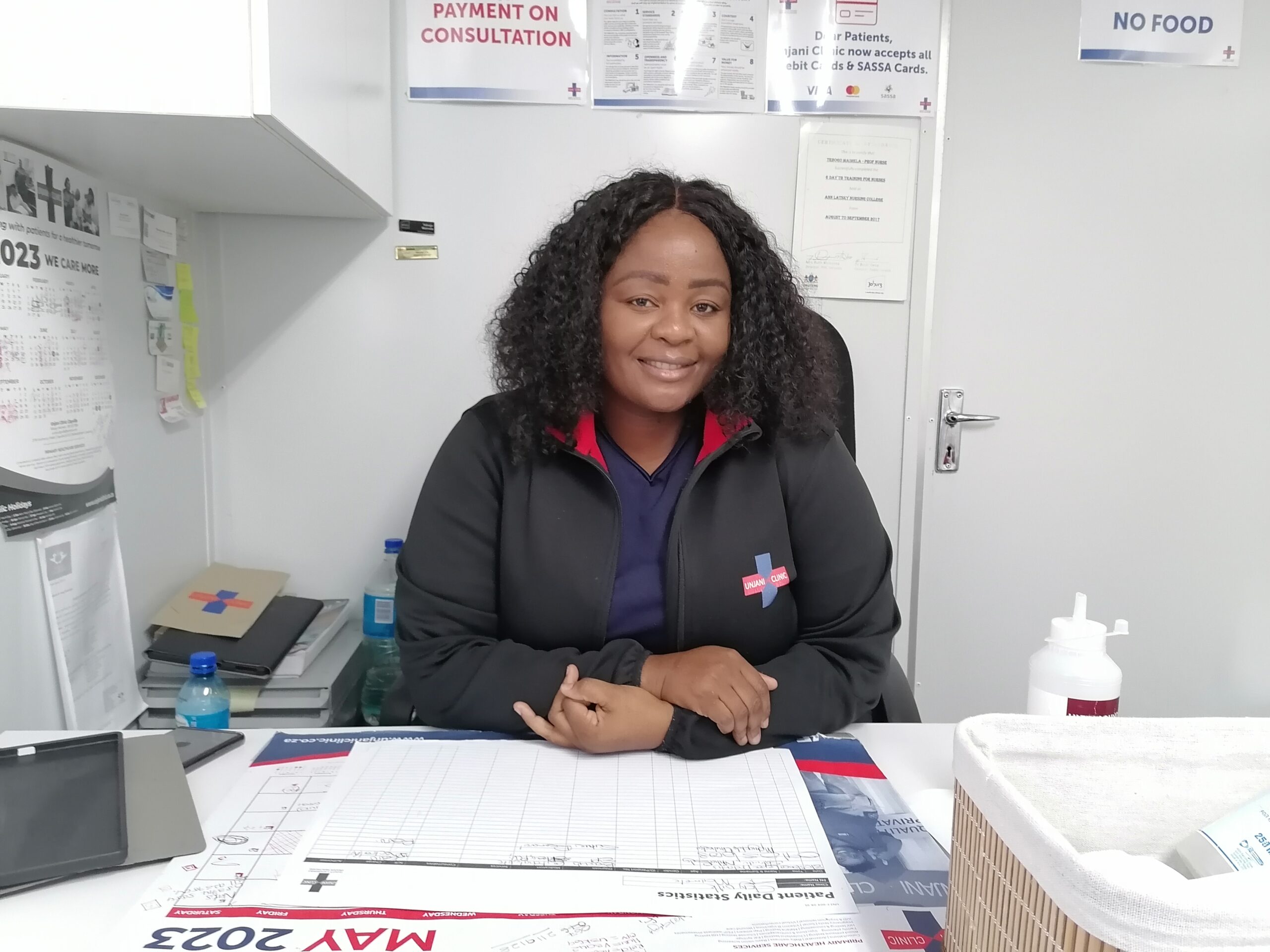
Tebogo Maimela’s private clinic is one of two Gauteng-based facilities that are piloting the app.
Based in Clayville, between Johannesburg and Pretoria, the clinic which is part of the Unjani Clinic network has been operating since February 2022.
Maimela said most patients visit the facility to avoid long queues at public clinics where one can wait up to four hours to see a consultant.
“I feel empowered now because with the manual screening, you could miss some things but with this device, you know that the results you are giving to a patient are accurate.”
Some have defaulted on their HIV medication and some children have missed their immunization dates.
“When it comes to breast cancer, I think more needs to be done to educate people about the disease,” Maimela said.
“As a country, we only have one month when we focus on breast health yet we have so many Black women being diagnosed daily.”
The World Health Organization reports that in 2020, 2.3 million women were diagnosed with breast cancer globally and it killed up to 685,000.
Previously, a nurse would do a clinical breast examination and then refer the patient to a tertiary facility if it was suspected that she had breast cancer.
While the ideal waiting time between diagnosis and surgery is expected to be four weeks, Spotlight reports that patients wait for up to six months because of the lack of resources at facilities.
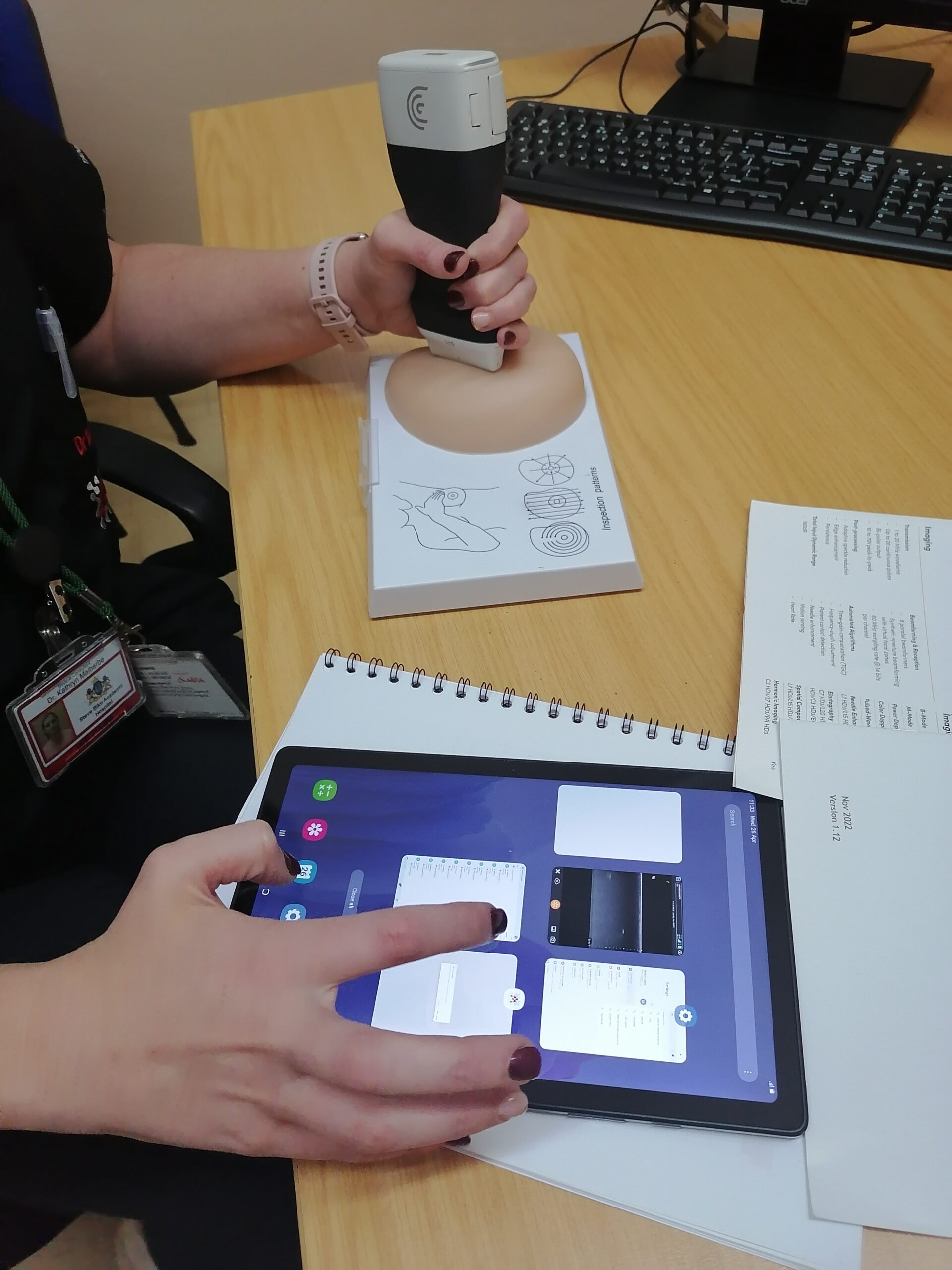
Getting treatment was also costly for most women who sometimes had to catch up to two taxis to get to the facilities. The referral system was also not patient-friendly.
“With this device, a patient gets their results immediately and the referral system is seamless, a service that most Black women would never have access to because most of them get diagnosed when the cancer is already advanced,” Maimela said.
After getting diagnosed, a patient gets referred to a hospital where a specialist will see them after a week.
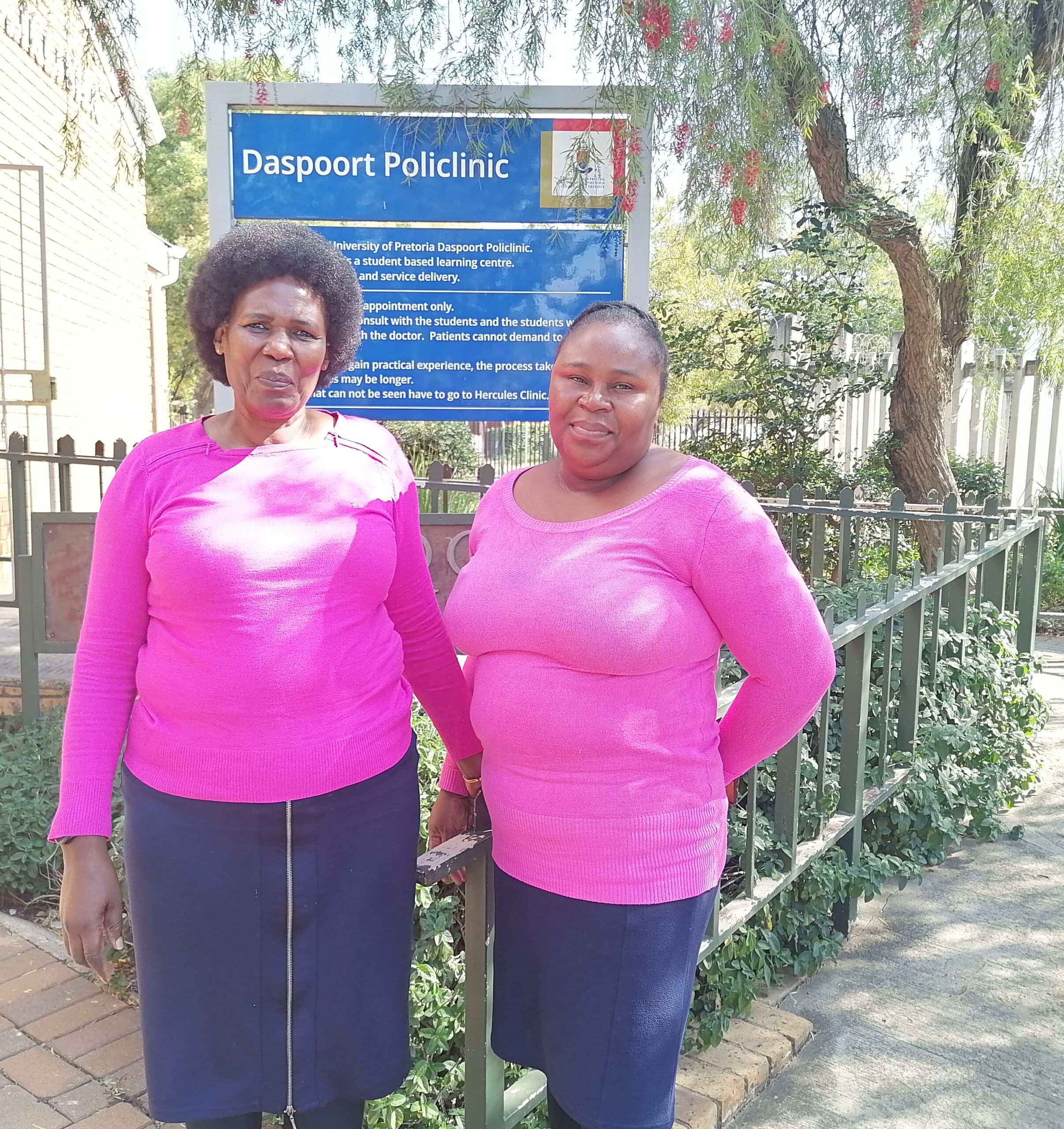
Sister Kedibone Shakwane from Daspoort PoliClinic in Pretoria was also trained to use the app and says it is going to change the experience of many healthcare workers and their patients.
“I feel empowered now because with the manual screening, you could miss some things but with this device, you know that the results you are giving to a patient are accurate,” said Shakwane.
“I also like that when I refer a patient to another facility, they will not be going for further tests because we already know what intervention will be required.”
Her colleague, Sister Phindile Yende said that lives will be saved with early detection and patients accessing specialists sooner through the referral system.
Yende said that more women will want to get screened because they will leave the clinic knowing exactly what needs to be done.
Out of the 43,811 South African women who were diagnosed with cancer in 2019, 10,272 were diagnosed with breast cancer, about 6,945 had cervical cancer and 1,952 had colorectal cancer.
The World Health Organization (WHO) reports that 2.3 million women globally were diagnosed with breast cancer in 2020 and it killed up to 685 000.
In the last five years, 7.8 million women were diagnosed with the disease. It is the most prevalent cancer in the world.
Out of the 43,811 South African women who were diagnosed with cancer in 2019, 10,272 were diagnosed with breast cancer, about 6,945 had cervical cancer and 1,952 had colorectal cancer.
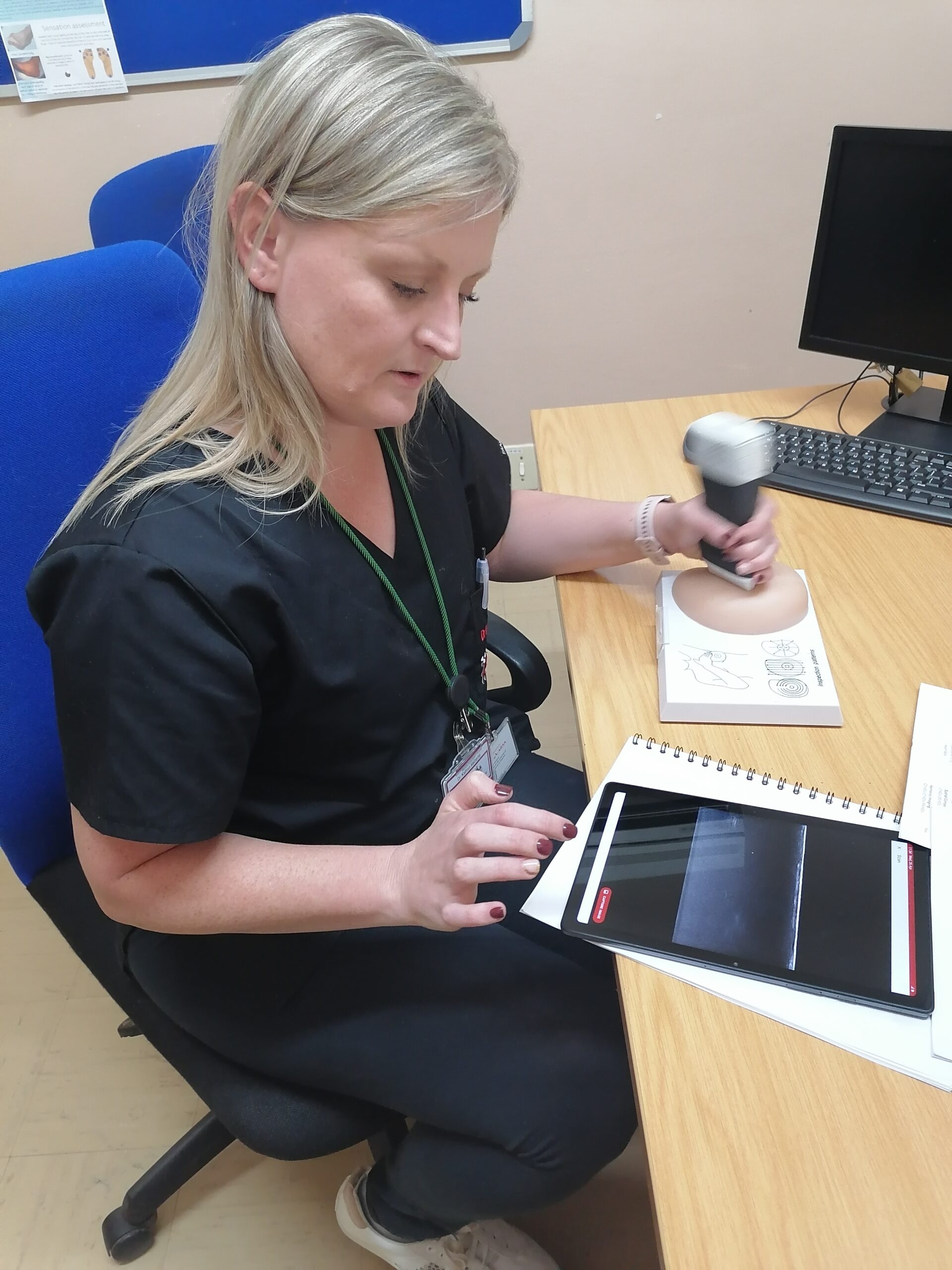
After working as a radiographer and mammographer for 15 years and seeing women from mostly disadvantaged communities die while waiting to see a specialist, Dr Kathryn Malherbe founded Medsol AI Solutions which developed Invisio AI, a web-based application and platform that detects cancer in seconds.
“With this device, we are going to improve the whole patient referral network and we want to develop a blueprint for South Africa and the rest of Africa.”
Invisio AI was also approved by the South African Health Products Regulatory Authority (SAHPRA) and it can be used to diagnose other diseases.
“We are the first South African company to run the AI with AstraZeneca which does not have AI since they are a pharmaceutical company,” Dr Kathryn said.
“With this device, we are going to improve the whole patient referral network and we want to develop a blueprint for South Africa and the rest of Africa.”
Through the non-profit Breast Cancer Support, Medsol AI Solutions will ramp up breast cancer education with community health workers (CHWs) who will also encourage people to get screened.
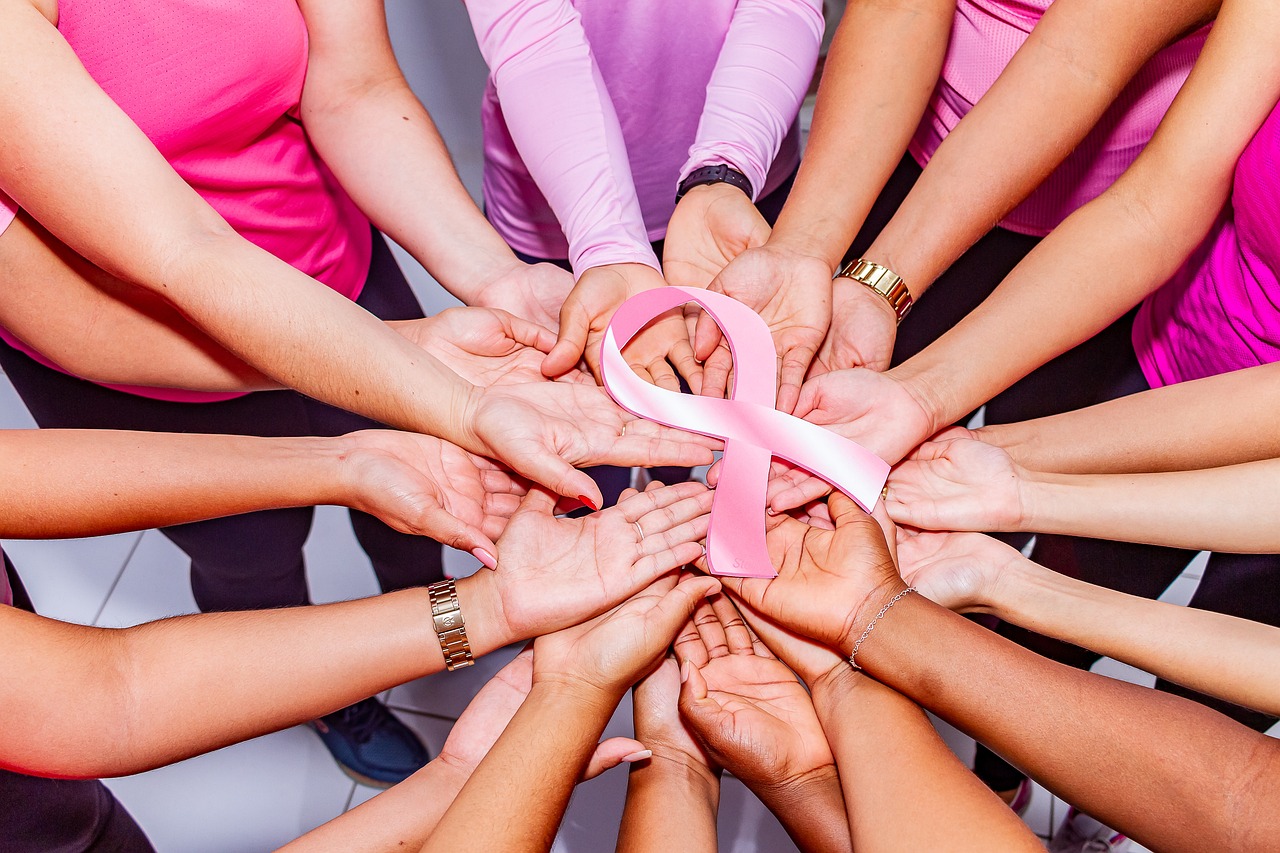
The CHWs will also accompany women who have been diagnosed with breast cancer through the app to their appointments.
Dr Kathryn said that Medsol AI Solutions has partnered with government hospitals to offer immediate surgical intervention.
Use innovation to tackle current problems in the health sector, and put the patient at the center of any innovation through strategic alliances within the healthcare ecosystem.
The Invisio AI app is supported by the Africa Health Innovation Hub, which is one of 20 hubs globally that are a part of the A. Catalyst Network.
The network seeks to improve access to affordable healthcare, use innovation to tackle current problems in the health sector, and put the patient at the center of any innovation through strategic alliances.
Johnathan Calder, the head of Digital and IT, and co-lead for AstraZeneca’s Africa Health Innovation Hub, said that disease education and awareness, early diagnosis and screening, devices and connectivity, and data generation are the hub’s key products.
Also, a part of the hub is Tricog Health Limited which aims to reduce heart-related deaths in Kenya and across Africa through the InstaECG AI technology for rapid diagnosis.
